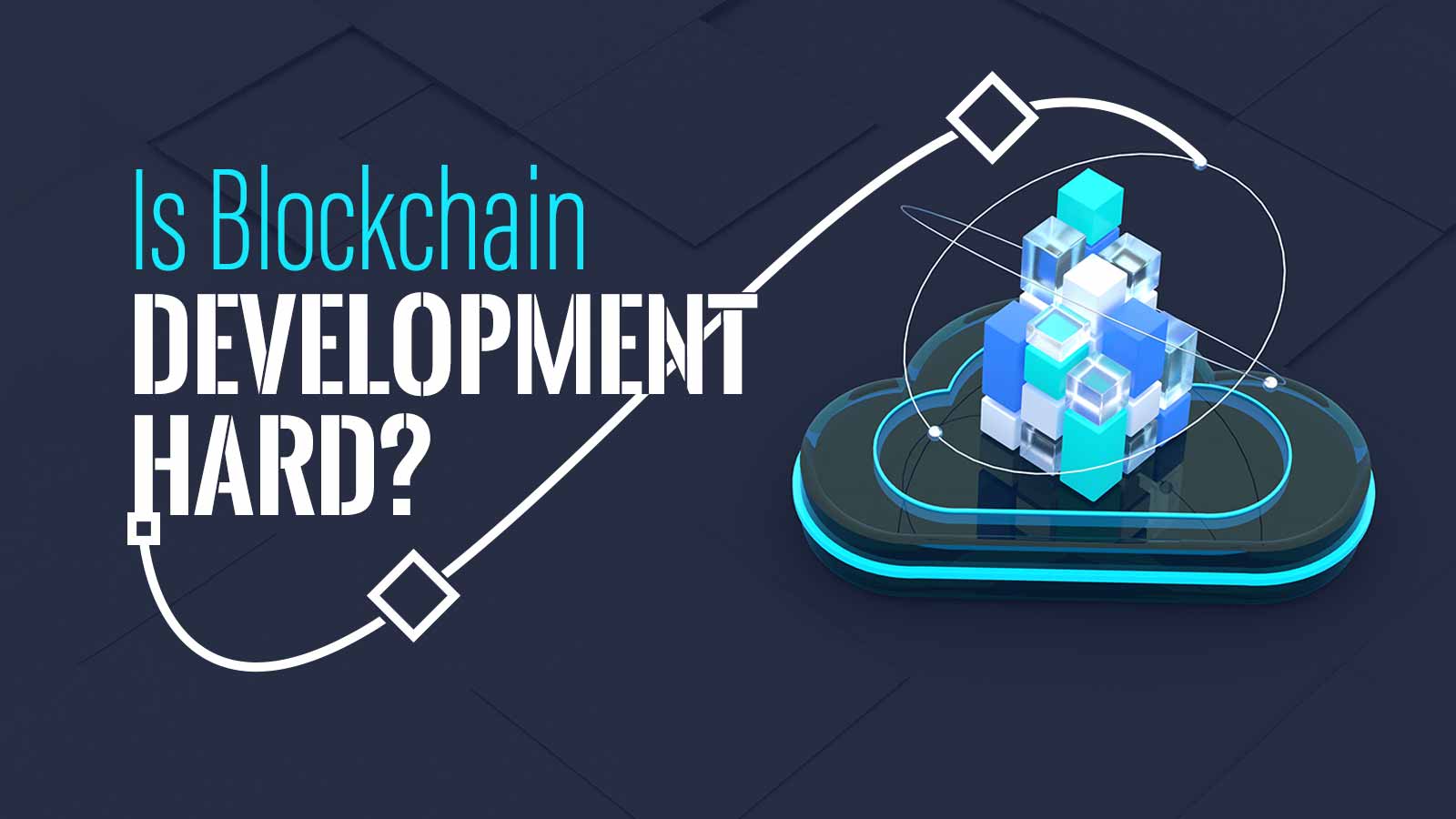
Is Blockchain Development Hard? Should I Be A Blockchain Developer?
Considering a career in blockchain development raises questions about the field’s complexity and its viability as a professional path. You may wonder, like many of us, “is blockchain development hard?”
Blockchain development can be challenging due to its technical depth, requiring knowledge in cryptography, data structures, and decentralized systems. Mastery of programming languages and smart contracts is essential. However, with dedication and continuous learning, aspiring developers can navigate and excel in this dynamic field.
Suppose you’re a coding enthusiast seeking a new challenge or an industry professional contemplating a shift. In that case, this discussion aims to shed light on the journey, the demands, and the potential rewards of entering the realm of blockchain development.
What Is Blockchain?

Blockchain is a decentralized, distributed ledger technology that records transactions across a network of computers. Each block contains a list of transactions, cryptographically linked and stored in a chronological chain. Once added, data in a block is immutable, enhancing security.
This technology eliminates the need for a central authority, ensuring transparency and preventing tampering. Smart contracts, self-executing code-facilitating agreements, are often part of a blockchain. Its applications span cryptocurrencies like Bitcoin to diverse fields, offering secure, transparent, and efficient data management and transaction systems.
Is Blockchain Development Hard?

Blockchain development can be challenging, yet not inherently difficult. Mastering it demands dedicated effort and an understanding of its core principles. Proficiency in languages like C and C++, along with knowledge of encryption and distributed systems, is essential.
Gaining expertise in blockchain programming requires time, practice, and a strong grasp of its intricate workings. While it may initially seem complex, with commitment and consistent learning, one can progress to become an adept blockchain developer.
Like any specialized field, it demands dedication, but it’s certainly achievable with perseverance and a solid foundational understanding of the technology involved.
Challenges Of Blockchain Developers

Blockchain development is a dynamic field, but it comes with its share of challenges. Here are seven main obstacles that blockchain developers face:
- Rapid Technological Evolution: Blockchain technology is continually evolving, with new concepts, protocols, and frameworks emerging. Staying current with these advancements can be demanding, requiring developers to adapt quickly to changes in the ecosystem.
- Scalability and Performance: Many blockchain networks need help to handle high transaction volumes efficiently. Scalability issues can lead to slow transaction processing times and increased costs. Developers need to find solutions to enhance the scalability and performance of their blockchain applications.
- Security Concerns: Blockchain’s immutable nature means that any flaws in smart contracts or digital wallets can have severe consequences. A single vulnerability can result in substantial financial losses. Developers must prioritize security and conduct rigorous testing to identify and rectify vulnerabilities.
- Skill and Knowledge Gap: Blockchain technology is still a niche field, making it challenging to find experienced developers and educational resources. Finding qualified experts and keeping the development team up to date with the latest trends can be a hurdle.
- Interoperability: The blockchain ecosystem consists of various platforms, each with its unique features and standards. Ensuring interoperability between different blockchains and legacy systems is a complex task that developers must address.
- Regulatory Compliance and Legal Uncertainty: The regulatory landscape for blockchain technology varies from one jurisdiction to another and is continually evolving. Developers must navigate this complex environment, which often involves legal ambiguity and uncertainty regarding compliance, especially for projects involving cryptocurrencies and tokenization.
- Community Consensus: Blockchain networks often require consensus mechanisms to validate transactions and maintain the network’s integrity. Achieving consensus can be challenging, especially in decentralized systems where network participants may have conflicting interests. Developers need to design and implement effective consensus algorithms that meet the network’s requirements.
How Long Does It Take To Develop A Blockchain Application?

The time needed to develop a blockchain application is highly variable, typically ranging from a few weeks to several months. The project’s complexity primarily influences the duration, the skill set of the development team, and the available resources.
Creating a fully functional blockchain application involves various stages, including conceptualization, architectural planning, coding, and rigorous testing before its release to production. Incorporating smart contracts and complex encryption can significantly extend the development cycle.
Efficient and timely development requires thorough planning, setting achievable milestones, and maintaining constant communication with the development team. By investing time in meticulous planning, establishing realistic goals, and fostering a collaborative environment within the team, the project can progress smoothly and expediently.
The key to expediting the development process lies in clear communication, effective project management, and a thorough understanding of the technology being employed. While some blockchain projects may be relatively straightforward and quick to execute, more intricate applications demand comprehensive attention and a longer development timeline.
Tools Needed To Develop Blockchain Applications
Developing blockchain applications requires specialized tools to streamline the process and ensure the efficiency and effectiveness of the applications. Here are some essential types of tools necessary for blockchain development:
Consensus Algorithm Libraries and Simulators:
These tools are essential for understanding, testing, and implementing various consensus algorithms. They enable developers to simulate and experiment with different consensus mechanisms, such as Proof of Work (PoW), Proof of Stake (PoS), or Practical Byzantine Fault Tolerance (PBFT).
Libraries and simulators like Ganache or Raft are used to model, test, and analyze the behavior of different consensus algorithms, aiding developers in choosing the most suitable consensus mechanism for their blockchain application.
These tools provide insights into the performance, security, and scalability of the chosen consensus protocol, which is crucial in the development and optimization of blockchain networks.
Smart Contract Development Tools:
These tools are fundamental for creating, testing, and deploying smart contracts, which are self-executing contracts written in code. Platforms like Remix and Truffle are widely used in the development and testing of smart contracts. They offer functionalities that allow developers to write, deploy, and debug smart contracts efficiently.
Blockchain Development Frameworks:
Frameworks like Ethereum’s Solidity and Hyperledger Fabric provide a comprehensive set of tools, libraries, and pre-built functionalities essential for building, deploying, and testing blockchain applications.
Solidity, for example, is a language specifically designed for writing smart contracts on the Ethereum blockchain. Hyperledger Fabric, on the other hand, offers a modular architecture for developing enterprise-grade applications.
Integrated Development Environments (IDEs):
IDEs such as Visual Studio Code with blockchain extensions or Ethereum Studio provide comprehensive environments with tools that aid in writing, debugging, and deploying blockchain applications.
These environments often offer features like code auto-completion, debugging tools, and project management functionalities tailored specifically for blockchain development.
Blockchain API Services:
These services offer high-level interfaces and functionalities that simplify interaction with various blockchain networks. They facilitate the integration of blockchain technology into applications by providing standardized methods to access and interact with the Blockchain.
APIs like Web3.js for Ethereum or Chainlink for decentralized oracles are examples that simplify and standardize the interaction between blockchain networks and applications.
Is It Hard to Build a Blockchain From Scratch?
Building a blockchain from scratch is a complex task requiring a deep understanding of various programming concepts, cryptographic principles, and network protocols. Creating a basic blockchain structure might be simple, but ensuring its security, scalability, and functionality demands meticulous attention to detail.
You’d need expertise in data structures, networking, consensus algorithms, and encryption. Implementing features like consensus mechanisms (Proof of Work/Proof of Stake), transaction validation, and block mining requires significant skill. Furthermore, ensuring the network’s security against potential vulnerabilities and attacks adds to the challenge.
While not impossible, constructing a robust and efficient blockchain demands substantial expertise, time, and a rigorous testing and iteration process to create a system that’s both functional and secure.
Benefits And Key Features Of Blockchain Development

Blockchain development offers a multitude of benefits and key features that revolutionize data management and transaction systems. Here are eight significant advantages:
- Decentralization: A primary feature, decentralization eliminates the need for a central authority, distributing control across a network. This not only enhances transparency but also reduces the risk of a single point of failure, making the system more resilient.
- Immutability: Once data is recorded in a block and added to the chain, it cannot be altered. This immutability ensures a secure, tamper-resistant record of transactions, which is vital in industries where data integrity is critical, such as finance and supply chain management.
- Enhanced Security: Blockchain’s cryptographic nature and consensus mechanisms make it highly secure. Its decentralized and transparent structure minimizes the risk of fraud or unauthorized alterations. Additionally, data encryption and digital signatures ensure robust security.
- Transparency and Traceability: Transactions recorded on the Blockchain are transparent and traceable. Every transaction is visible, promoting accountability and trust. This is particularly valuable in industries like healthcare, where tracking the origin and handling of sensitive data is crucial.
- Smart Contracts: Self-executing, programmable contracts automate and enforce agreements. They trigger actions when predefined conditions are met, cutting out intermediaries and reducing costs in various fields, from real estate to logistics.
- Fast and Efficient Transactions: Blockchain enables peer-to-peer transactions without the need for intermediaries, leading to faster and more efficient transactions. Cross-border payments and settlements, in particular, benefit from this feature.
- Cost Reduction: With fewer intermediaries, automated processes, and increased efficiency, Blockchain reduces transaction costs. It streamlines operations in various industries, cutting expenses associated with third-party interventions and administrative tasks.
- Innovation and Diverse Applications: Blockchain’s versatility fosters innovation. Its application spans diverse fields, from finance and healthcare to supply chain management and voting systems. Its potential for creating decentralized applications (dApps) and tokenization has led to a myriad of new possibilities.
How Do Cryptocurrencies Connect To The Blockchain?
Cryptocurrencies and Blockchain technology are intrinsically linked, with cryptocurrencies like Bitcoin and Ethereum operating on top of the Blockchain. Each exchange of cryptocurrency is recorded in a public ledger, the Blockchain, verified by a decentralized network of computers. The distributed ledger system independently records and authenticates transactions without a central administrator.
Mining is the process through which new blocks are added to the Blockchain, validating transactions. This network of nodes is pivotal for cryptocurrency functionality. After validation, a new block is created and appended to the Blockchain, securing the transaction data.
Blockchain’s integration with cryptocurrencies offers immutable, auditable, and private records. It ensures a decentralized network impervious to censorship and manipulation, bolstering the security and integrity of cryptocurrency transactions. This close connection between cryptocurrencies and Blockchain provides a secure, transparent, and decentralized platform for financial transactions and beyond.
How To Become A Blockchain Developer?

Becoming a blockchain developer involves mastering various technical skills, understanding blockchain fundamentals, and gaining hands-on experience. Here are eight steps to guide you toward becoming a proficient blockchain developer:
Academic Foundation
Consider pursuing a degree in computer science, IT, or related fields. While not mandatory, academic qualifications provide a solid foundation. Look for specialized courses or certifications that focus on blockchain technology to deepen your understanding.
Master Technical Skills
Develop proficiency in essential tech skills. Learn programming languages like Java, C++, or Python, emphasizing object-oriented programming (OOPs). Familiarize yourself with data structures such as linked lists, binary trees, and hashes. Understand databases, networking, and cryptography, which are crucial for blockchain development.
Understand Blockchain Fundamentals
Dive into the workings of blockchain technology. Learn about its architecture, consensus algorithms, distributed ledger mechanisms, and cryptographic principles. Explore topics like public and private keys, decentralization, and Bitcoin. Utilize online courses, workshops, and publications to grasp these fundamental concepts.
Grasp Cryptonomics
Cryptonomics merges cryptography and economics, which is essential in understanding the economic dynamics of cryptocurrencies. Study transaction fees, mining processes, and the lifecycle of Bitcoin transactions. Though a smaller aspect, comprehending cryptocurrency economics is integral to understanding the foundations of Blockchain.
Explore Ethereum and DApps
Focus on Ethereum, a prominent blockchain platform. Understand its role in executing smart contracts and developing decentralized applications (DApps). Ethereum offers versatility for beginners due to its open-source nature. Explore other platforms like EOS and Hyperledger as well.
Study Smart Contracts and Solidity
Delve into smart contracts, their importance in automation, and the Solidity language. Smart contracts are deterministic and self-executing agreements written in languages like Solidity (similar to JavaScript). Familiarize yourself with other smart contract languages such as Vyper and Simplicity.
Gain Hands-On Experience
Apply your theoretical knowledge by engaging in practical development. Write smart contracts, build DApps, and seek hands-on experience through internships, training programs, or personal projects. Participate in discussion forums like Reddit and Stack Exchange to learn from and engage with blockchain experts.
Continual Learning and Networking
Blockchain technology is constantly evolving. Stay updated with the latest developments, new tools, and emerging platforms. Network with professionals, join blockchain communities, attend conferences, and contribute to open-source projects to continuously enhance your skills.
Required Skills Of A Blockchain Developer
The skills required for a blockchain developer encompass a diverse range of technical competencies and an understanding of fundamental principles:
Blockchain Architecture:
A comprehensive grasp of blockchain architecture is fundamental. Knowledge about cryptography, hash functions, smart contracts, decentralized applications, and different consensus methods (like Proof of Work and Proof of Stake) is essential. Understanding various blockchain types—public, private, consortium, and mixed—helps in tailoring solutions for specific needs.
Cryptography:
Proficiency in cryptography is crucial for securing blockchain systems. Developers need expertise in managing keys, digital signatures, symmetric and asymmetric encryption, and public-key cryptography to safeguard data. Understanding hash functions like SHA-256 and Keccak-256 is vital. Distinguishing between permissioned and permissionless blockchains and knowing how to utilize both enhances their capabilities.
Data Structures:
Given that blockchain networks are built on data patterns, developers should be well-versed in various data structures. Understanding graphs, heaps, hash trees, linked lists, and Merkle trees is essential. Proficiency in accessing, searching, and modifying data within these structures is necessary for effective blockchain development.
Distributed Systems:
Blockchain relies on distributed ledger technology (DLT) and decentralized systems. Knowledge of peer-to-peer networks, efficient communication, and avoiding single points of failure is essential. Understanding how consensus methods work in distributed systems ensures the reliability of blockchain networks.
Programming Languages:
Proficiency in programming languages is crucial. While mastery of every language isn’t necessary, proficiency in popular languages like Java, C++, Python, and JavaScript is essential. Knowledge of languages used for smart contract development, such as Vyper, Solidity, and Chaincode, is also critical.
Smart Contracts:
Understanding and expertise in creating, implementing, and testing smart contracts is vital. Developers must comprehend the concept of self-executing digital agreements and the application of business rules within smart contracts.
Web Development:
Blockchain and web development are interconnected. Knowledge of web development tools and skills in creating and maintaining web applications are crucial. Ensuring smooth and user-friendly web applications that seamlessly interact with blockchain networks is a vital skill.
The Best Way To Learn Blockchain Programming
Learning blockchain programming requires a structured approach and immersion in various technical aspects. Here’s a guide that covers key facets of a comprehensive learning experience:
Practical Application:
Hands-on practice is essential. Start by implementing small projects or working on existing open-source blockchain projects. This practical experience helps reinforce theoretical knowledge and provides a deeper understanding of how blockchain systems function in real scenarios.
Exploration of Frameworks and Tools:
Dive into different blockchain frameworks and development tools. Explore platforms like Ethereum, Hyperledger Fabric, or EOS. Experimenting with these frameworks exposes you to various functionalities and aids in understanding the nuances of blockchain development.
Workshops, Bootcamps, and Online Courses:
Enroll in workshops, boot camps, or online courses that offer structured learning environments. These platforms often cover a wide range of topics, from blockchain basics to advanced development. Look for programs that include coding exercises and real-world projects for hands-on experience.
Networking and Collaboration:
Engage with the blockchain community by joining forums, attending meetups, and participating in developer communities. Collaboration with peers, exchanging ideas, and discussing challenges can provide valuable insights and solutions.
Deep Dive into Smart Contracts and Solidity:
Focus on understanding smart contracts, the backbone of many blockchain applications. Learn languages like Solidity, Vyper, or Chaincode, specifically designed for writing smart contracts. Explore platforms that offer simulated environments for testing smart contracts.
Continuous Learning and Experimentation:
Blockchain technology evolves rapidly. Stay updated with the latest trends, updates, and new tools. Experiment with emerging technologies, stay curious and don’t hesitate to try out new platforms or languages.
Problem-Solving Approach:
Approach blockchain programming with a problem-solving mindset. Tackle complex issues, debug code, and understand the underlying mechanisms. This approach helps in developing a deeper understanding of the technology.
Documentation and Research:
Regularly review whitepapers, research papers, and documentation related to Blockchain. Understanding the underlying principles and protocols is crucial to becoming proficient in blockchain programming.
Is Blockchain Developer A Good Career?

Becoming a blockchain developer presents a lucrative and promising career path. The industry’s exponential growth is evident, with the market forecasted to exceed $21 billion by 2025.
Entry-level positions offer a competitive salary, averaging around $115,000 annually, while mid-career professionals can earn approximately $125,000 per year. Those with advanced skills can command even higher salaries, ranging up to $145,000 annually, and experts in the field might earn around $155,000 yearly.
The rapid evolution of blockchain technology and its increasing integration into various industries, especially within the cryptocurrency market, further solidifies its significance. With over 10,000 cryptocurrencies and 50 million blockchain wallets in use globally, the technology’s expansion is substantial.
Forecasts predict significant growth in the crypto workforce, with an expected worth surpassing $68 billion by 2030 and a projected increase of 13% in job opportunities, equating to approximately 668,000 additional jobs.
The considerable investment and the expanding use of blockchain technology across diverse sectors indicate a robust and promising career trajectory for blockchain developers. As technology continues to advance, the demand for skilled professionals in this field is set to soar, making it an excellent career choice.
Frequently Asked Questions
Is Blockchain Development Only For Experts In Coding?
Not exclusively. While a background in coding is beneficial, beginners can learn blockchain development. It requires dedication to understand cryptographic principles, programming languages, and distributed systems.
How Challenging Is Learning The Cryptography Aspect Of Blockchain?
Cryptography can be intricate, but foundational knowledge of digital signatures, hash functions, and encryption is crucial for Blockchain. Dedicated learning and practice can make it understandable.
Is Mastering Smart Contracts A Difficult Aspect Of Blockchain Development?
Understanding smart contracts can be challenging due to their self-executing nature. Learning languages like Solidity and Vyper and practicing building and testing smart contracts is essential.
Is It Necessary To Understand Consensus Algorithms For Blockchain Development?
Understanding consensus methods, like Proof of Work and Proof of Stake, is crucial for Blockchain. It’s challenging but fundamental to comprehend how transactions are verified and added to the Blockchain.
How Hard Is It To Grasp The Concept Of Decentralized Systems In Blockchain?
Decentralization, a core aspect of Blockchain, can be complex to grasp. Learning about distributed ledger technologies and how peer-to-peer networks function is crucial.
Can A Non-Technical Individual Learn Blockchain Development?
Yes, non-technical individuals can learn blockchain development. Dedication, resourcefulness, and a willingness to understand the technology are essential. There are various resources available, from courses to online tutorials, catering to different skill levels.
Finally, Is Blockchain Development Worth It?
Absolutely, blockchain development is worth the effort. The industry’s rapid growth, substantial investment, and increasing integration across various sectors make it an exciting and promising career choice. The expanding use of blockchain technology, especially in cryptocurrencies and decentralized applications, presents a vast landscape of opportunities for professionals.
With high-demand skill sets, developers can command competitive salaries at various career stages, from entry-level positions to seasoned experts. The continual evolution and potential for innovation in blockchain technology also promise long-term relevance and job security.
As technology advances and becomes more mainstream, those skilled in blockchain development will find themselves at the forefront of a transformative industry, making it an incredibly worthwhile and rewarding career path.

















































